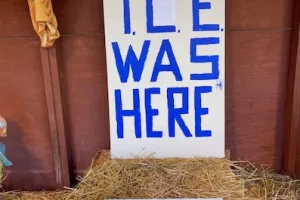UK churches 'National Help Service' under threat due to vanishing funding

Church leaders have called for urgent government support to protect churches after a new report highlighted the UK's increasing reliance on mainly-volunteer led services including food banks, mental health counselling and youth groups based in churches, chapels and meeting houses.
The House of Good report from the National Churches Trust, the UK's leading church buildings support charity, has branded the nation's church buildings a 'National Help Service' after finding they provided £12.4 billion worth of essential social and economic support to local communities during the 12 months up until May 2020.
The report found that church buildings are a ready-made network of responsive hubs providing increasing levels of care and wellbeing to local communities throughout the UK. The majority of churches found a way to provide community support during the COVID-19 pandemic but the report warns that many of their buildings are under threat, especially in towns and cities where they deliver the most value, as support for essential maintenance and repair from government and other funding bodies dries up.
Chief Executive of the National Churches Trust, Claire Walker said: "During the COVID-19 pandemic, church buildings were placed in the same category as gyms and cinemas and forced to lock down. But for the most vulnerable in our society, the support church buildings offer is not a recreational choice - it's an essential need - and lockdown served to highlight the increasing reliance of people on this support. These buildings have become our National Help Service.
"But this is a National Help Service that we risk losing and may never be able to replace if these buildings do not get the financial support they need. Each year, we receive thousands of requests for help from churches desperately in need of repairing the roof, or installing kitchen facilities and toilets, but we are only able to fund a quarter of these. For this reason, we are urgently calling on local and national government and the National Lottery Heritage Fund to recognise the continuing need for their support."
Most Rev Justin Welby, Archbishop of Canterbury and Most Rev Stephen Cottrell, Archbishop of York, Joint Presidents of the National Churches Trust said: "During lockdown, churches around the country continued to use their buildings for the benefit of society as people suffered the fallout of the pandemic. The value that church buildings provide in offering a space where all are welcomed and loved might be priceless, but looking after them has a very large cost. This report makes the argument for why it is appropriate for church-based community services to be funded by national government."
Roman Catholic Archbishop of Wales, George Stack said: "Food Banks, Night Shelters, Lunch Clubs, Food Delivery, Community Centres, Advice and Counselling Sessions and so much else take place on church premises and in church halls, in historic buildings which are beloved by local communities. But the challenges of maintaining church buildings and their work is greater than ever because of an increasing scarcity of resources."
Will Watt, Director of State of Life, social impact and value specialists, which carried out the study said: "Evidencing the full social value of the church building and its congregation and volunteers was a pioneering and rewarding challenge. The findings reveal that churches are without doubt 'key places' in our community. Churches provide a ready-made and extremely cost-effective source of help, support and care. This care radiates out from the buildings into our communities.
"The value we present in the report could easily be four or six times higher using other methods consistent with the Treasury Green Book."
About the report
For the first time, a detailed economic study has measured the extent of the social and economic value the UK's 40,300 church buildings provide to the nation and local communities. It examined church buildings open to the public and being used for Christian worship. This includes churches, chapels, meeting houses and church halls but excludes cathedrals.
In the UK, the total social value of church buildings calculated so far is at least £12.4 billion: roughly equal to the total NHS spending in England on mental health in 2018.
Cost benefit analysis shows that for every £1 invested in church buildings there is a Social Return on Investment (SROI) of £3.74 using the most conservative methods, with some wellbeing valuation methods estimating the SROI to be up to £18.10.
The House of Good study follows a methodology that is consistent with HM Treasury's The Green Book, the UK Government's key source of guidance on how to assess a policy's economic and social value. The evaluation is divided into two key sections on market and non-market value.
This report has, at almost every stage, used the most conservative estimates and has not included all areas of social and community care. It also does not include other areas of potential value for church buildings such as tourism, heritage and non-use value.
Market value
£1.4 billion: the direct economic value created by the running, staffing and hiring out of church buildings.
£200 million: the replacement cost of social and community services, like food banks, youth groups, mental health services.
£850 million: the replacement cost of volunteers' time.
Non market value
£165 million: the wellbeing value to volunteers.
£8.3 billion: the wellbeing value to the hundreds of thousands of people who benefit from
social and community services provided in, or with the help of, churches.
£1.4 billion: the wellbeing value of attending church services.
LINKS
Read the The House of Good report - www.houseofgood.nationalchurchestrust.org/


















